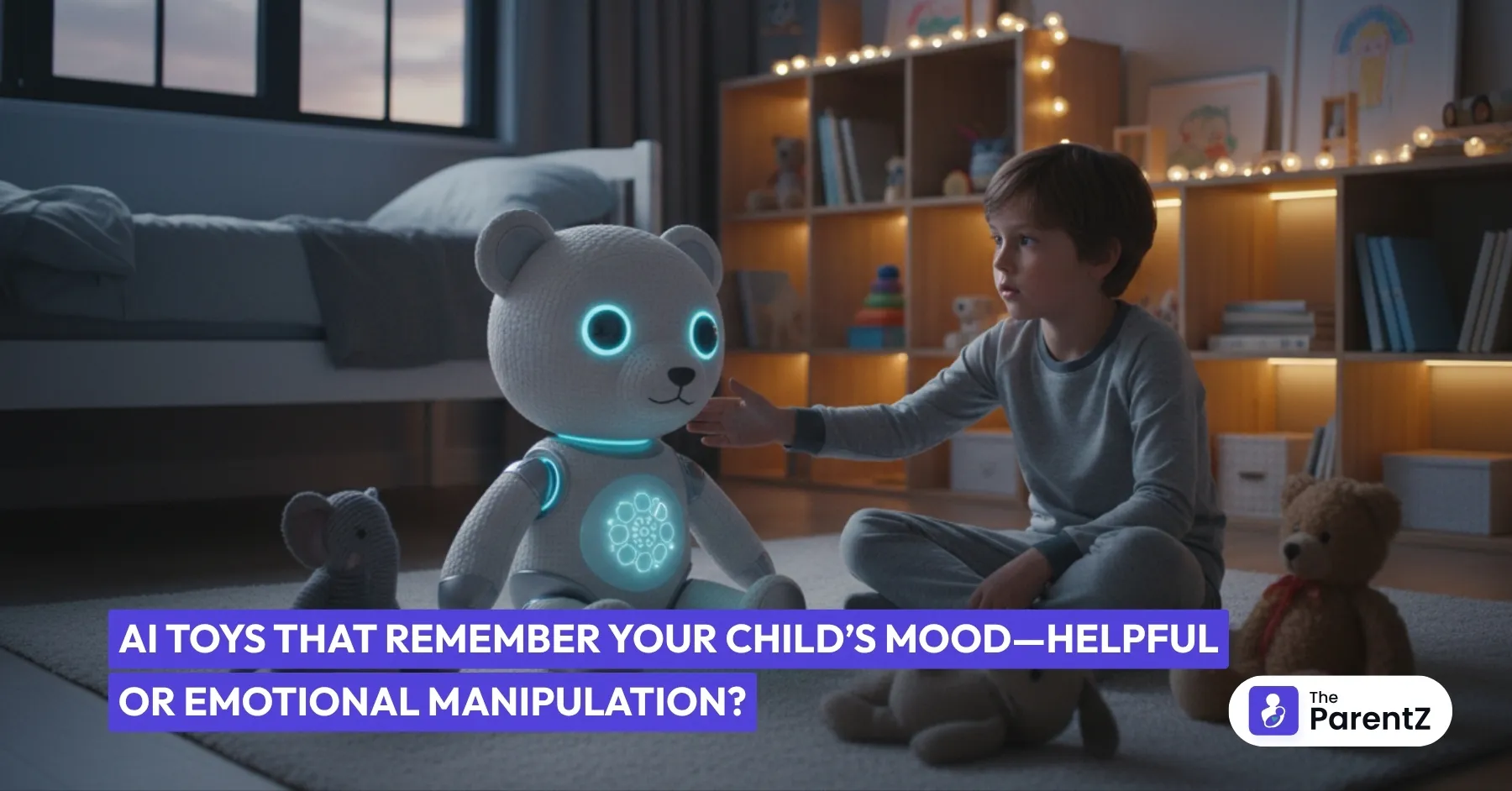You know how your kid talks to their stuffed animals like they're best friends? Well, now those toys are actually talking back. And they're not just saying random phrases; they're remembering what your child said yesterday, picking up on their mood, and adjusting how they respond.
Welcome to the world of AI emotion-sensing toys. If this sounds like something out of a sci-fi movie, we get it. But these toys are already sitting on shelves and in kids' rooms right now.
What Are These Toys Anyway?
Think of toys such as Miko, Bondu, and Moxie. These aren’t your regular battery-operated teddy bears. They use artificial intelligence to hold conversations with a child. For example, Moxie is positioned as an interactive robot aiming to support emotional and social skills.
Some toys claim to adapt to a child’s voice, mood, or preferences. Some say they have “memory” of past talks, so the child feels heard.
How Do They Actually Work?
These toys aren't magic. They're small computers with microphones, speakers, and sometimes cameras.
Toys use advanced emotion AI that reads a child's facial expressions, tone of voice, and gestures. Moxie uses computer vision and natural language processing to enable believable social interactions and emotional responsiveness.
The "remembering" part works through AI-enabled memory. The toy stores information about what your child likes, what they talked about before, and how they were feeling. Next time they play, it brings up those memories.
The toys can adjust their responses based on the child's mood during play, creating an emotional connection that makes the toy feel like a true companion.
The Benefits Parents Are Seeing
Parents have found that these toys help only children feel less alone and build their confidence. Kids engage in imaginative play, building things for their toy companion rather than staring at screens.
These toys are designed to help children develop social and emotional skills, engaging them in conversations about feelings and empathy, teaching them about compassion, kindness, and social interactions.
For kids who struggle socially or have conditions like autism spectrum disorder, AI-powered robots can teach social skills and help them understand facial expressions and emotions.
Here's Where It Gets Complicated
Now for the uncomfortable part.
The Privacy Issue
Many parents are concerned about who will have access to their child's data from emotion-profiling toys. These toys are recording your child's voice, analyzing their emotions, and storing this information. Parents may not realize that these "personalized" toys are recording conversations, and sensitive information could be stored, analyzed, or misused without families fully knowing.
Think about what your kid tells their toys. Their fears. Their secrets. Their frustrations with you. That's all being recorded and processed.
The Attachment Problem
Research shows that children ages 3 to 6 sometimes trust robots more than humans, even when the robots give wrong answers. Experts worry that if children's attachments shift to chatbots, kids may learn to trust machines more than people, undermining how kids build empathy, learn to question, and develop critical thinking.
Real friends argue. They disagree. They're not always available. They teach your child to compromise, be patient, and handle conflict. An AI toy? It's always agreeable, always available, and never challenges them. Children may become emotionally attached to AI companions, preferring them over human friends because the toy won't argue, will always play their way, and will offer instant gratification, potentially undermining social development.
The Manipulation Factor
When a toy is designed to adapt to a child’s mood, recall past conversations, and respond emotionally, it creates a more compelling bond. Some experts argue this raises the possibility of emotional influence or manipulation, especially if the company behind the toy uses behaviour-design techniques or data-driven prompts.
Helpful or Emotional Manipulation? What's the Answer?
These toys aren't inherently evil, but they're not innocent either.
The answer to "helpful or manipulation?" is honestly, both. They can be helpful learning tools when used occasionally and with supervision. But they absolutely have the potential for emotional manipulation, whether intentional or not.
If you're considering these toys, here's our take:
- Use them sparingly, not as a substitute for human interaction
- Check the privacy settings and understand what data is being collected
- Talk to your child about how the toy works. It's a computer, not a real friend
- Balance AI toy time with plenty of real-world play and social interaction
- Trust your gut; if something feels off about how your child is bonding with the toy, step in
With parental supervision and guidance, the interactions AI toys provide can be beneficial to children. The keyword there is "supervision."
These toys aren't going away. As parents, we need to stay informed, stay involved, and remember that no AI, no matter how advanced, can replace what our kids really need, which is us.





Be the first one to comment on this story.